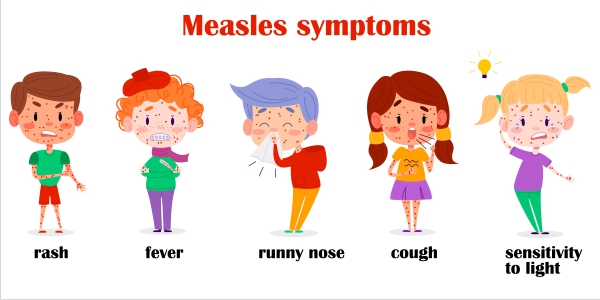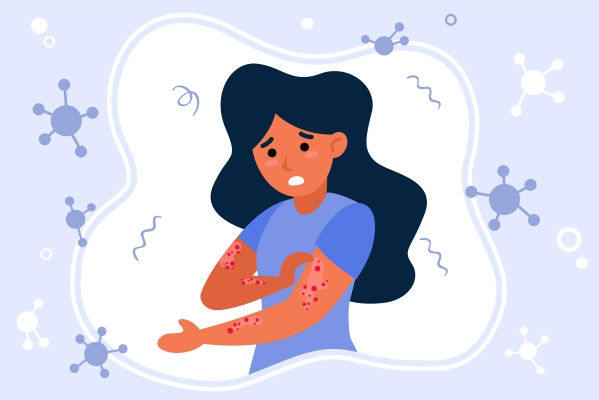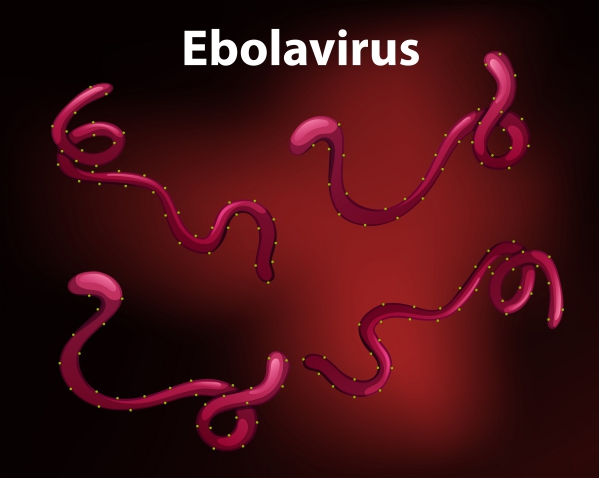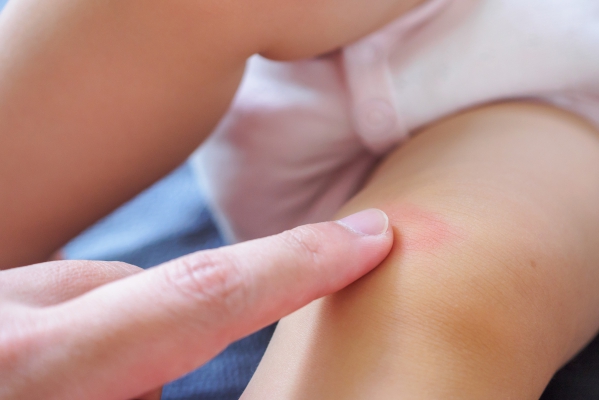What is Measles?
Measles, also known as rubeola, is a very common contagious disease that is caused by a virus. Despite being more common among children, it can affect anyone at any age. In some cases, it can even be fatal or leave serious sequelae. With time, its occurrence have decreased with the introduction of the vaccine against the virus. However, it still causes around 100,000 deaths, mostly children. It is an infection that can also weaken your immune system putting you more at risk of other infections and diseases.
Measles occur mostly in epidemic outbreaks. It is most common during late winter or spring. The infection can be transmitted from one person to another through respiratory droplets that remain active and contagious for around 2 hours in the air or on surfaces. Once the virus gets into contact with your respiratory tract, it divides and multiplies causing the disease in the contaminated individual. Symptoms start to appear a few days after exposure to the virus.
If you have measles, your doctor will have to report to the concerned authorities as it is important to prevent further spread of the virus by instilling preventive measures in your locality. The treatment of measles is mostly supportive and isolation is the most important step to prevent the spread.
Causes and risk factors of measles
Measles is caused by the measles virus. It forms part of the family of viruses called the Paramyxoviridae. It is a virus that lives only in humans as no animal hosts have been identified till now. It is a highly contagious virus that spreads in respiratory droplets when someone coughs or sneezes or via personal contact with the secretions of an infected individual. Infected droplets can also live for a few hours on surfaces of objects or furniture also known as fomites.

There are several factors that can put you more at risk of having measles. These include:
- Young age
- Having a weak immune system for example due to human immunodeficiency virus (HIV), acquired immunodeficiency syndrome (AIDS), leukaemia or corticosteroid therapy
- Travelling to areas known to have measles
- Not having been vaccinated against measles
Other factors can contribute to having severe measles including:
- Malnutrition
- Having a weak immune system
- Being pregnant
- Being deficient in vitamin A
Signs and symptoms of measles
Usually, the clinical history will indicate a possible exposure to the virus. Symptoms will start to appear 7-14 days after the exposure. Once you start having the symptoms, you can further transmit the infection during the first 1-2 days. Some common signs and symptoms of measles include:
- High fever often greater than 40° C that last for around 4-7 days
- Malaise
- Loss of appetite
- Red eye
- Cough
- Runny nose
- Muscle pain and fatigue
- Swollen eyes
- Eye sensitivity to light
- Reddish skin rash which may be itchy, starting on the face and neck spreading to the extremities
- White spots on the inner side of your cheeks


Making a diagnosis
Usually, a good clinical history may be enough to point towards the diagnosis of measles. However, in some cases, the rash may not be clearly typical to measles and therefore, your doctor may order some tests to confirm the diagnosis. Normally, a sample of saliva from the throat or blood may be taken and special tests are done to look for the presence of measles virus. In cases where complications are suspected, other tests may be needed. For example, if pneumonia is suspected, a chest X-ray may be done. If encephalitis (inflammation of the brain) is suspected, a lumbar puncture may be required. In this procedure, a needle is inserted in between your vertebrae and some fluid called the cerebrospinal fluid is withdrawn for further examination.
Treatment of Measles
The treatment of measles is mostly around alleviating the symptoms and making sure that you do not get dehydrated. In cases where complicated measles is present, hospital admission may be required for proper treatment. Treatment options for measles include:
- Intravenous rehydration: This may be needed in people who are dehydrated following vomiting and diarrhoea.
- Antipyretics: These medications are useful to bring down high fever. Some examples include acetaminophen and ibuprofen.
- Isolation: Infected people should stay away from other individuals to prevent further spread especially at the appearance of symptoms.
- Antibiotics: Antibiotics may be required in cases where bacterial infections have appeared following weakening of immune system.
- Vitamin A supplementation: Studies have shown that vitamin A supplementations can decrease mortality by 50%. The World Health Organisation has recommended that every child with measles should get vitamin A supplementation no matter what country or age.
- Vaccination: Measles vaccine is usually done during early childhood as the measles-mumps-rubella (MMR) vaccine. It can also be done to prevent disease if you think having been exposed to the virus within the last 3 days. However, it is not recommended to get the vaccine if you already are immunosuppressed.
- Human immunoglobulin: This is an alternative for individuals who cannot receive the vaccine against measles. It can also be administered if you suspect having been exposed to the virus within the last 6 days.

Complications of Measles
The majority of complications related to measles arise due to the weakening of your immune system following infection. These may include:
- Bacterial infections such as pneumonia
- Reactivation of dormant infections such as tuberculosis
- Ear infections
- Inflammation of the voice box (larynx) or upper respiratory tract
- Inflammation of the brain
Prevention of Measles
The main and most important step in prevention of measles is to get vaccinated. Other measures include getting the vaccine especially if you will be travelling abroad or to areas known to have measles outbreaks. Isolation is particularly important if someone in your household is infected as the virus can easily spread. You should keep away from infected people especially if you are unvaccinated.

Prognosis
In general, the prognosis for measles is good, being fatal only in rare cases. The Centre for Disease Control has estimated that 0.1-0.2% of children with measles die due to the disease. Many complications may arise following infection from the virus, encephalitis and pneumonia being the most common cause of death related to measles.

Source:
Chen, S., 2019. Measles.
Parveen, K. and Michael, C., 2017. Kumar & Clarks Clinical Medicine. 9th ed. The Netherlands: ELSEVIER.









